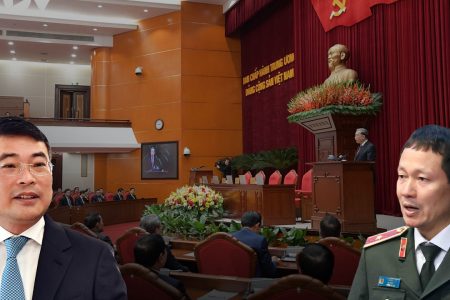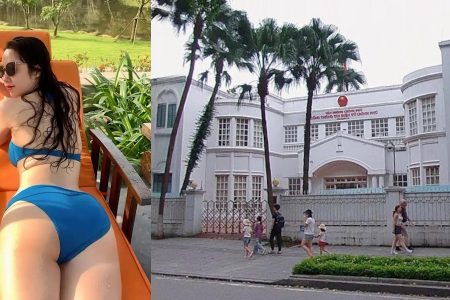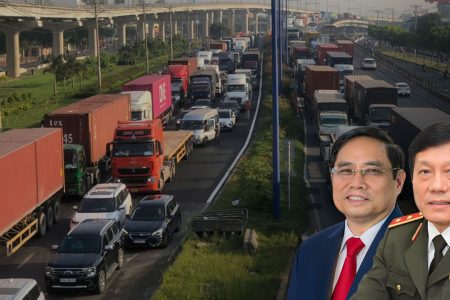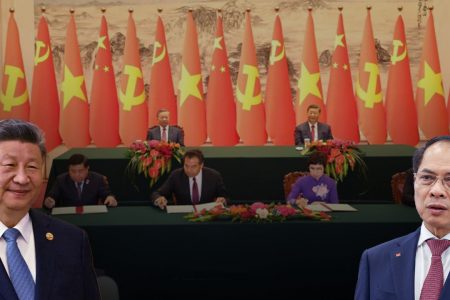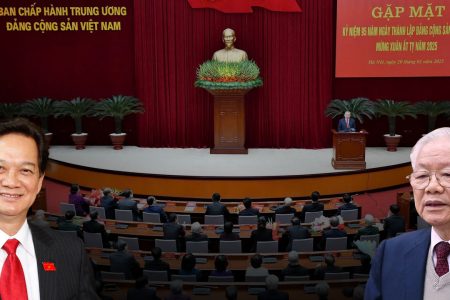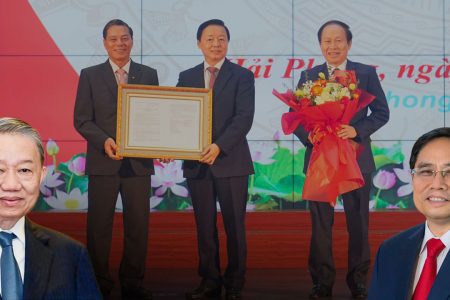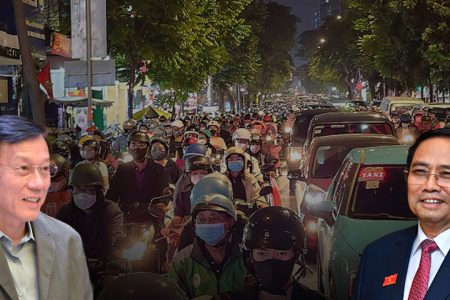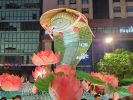
The super-wealthy in Vietnam can be divided into three groups according to their path and field of enrichment, although this diversity appears to have shared “common things”, said an observer of Vietnam’s economy and society from Hanoi told the BBC.
According to Assoc. Dr. Nguyen Hoang Anh, the view of the community in Vietnam with this class is still quite contradictory, on the one hand, there is “admiration” and “fascination” with their wealth, but on the other hand, there is “hate” and “hidden envy,” just waiting for the opportunity to show fearlessly.
However, according to Ms. Anh, who has studied and taught at universities in Vietnam for many years on trade and foreign trade, people who get rich legally and benefit society are welcome.
Vietnam is continuing to be led by the Communist Party in the direction of socialism
First of all, identifying the super-rich in Vietnam today, from Hanoi on May 31, 2021, Ms. Anh told BBC News Vietnamese:
“According to the 2021 Wealth Report, which has just been released by consulting firm Knight Frank, the number of super-rich individuals – possessing investable assets of over $30 million – in Vietnam in 2020 is 390 people, down from 405 people the previous year; the 6 richest people in Vietnam own nearly $17 billion.
Leading this list is Vingroup Chairman Pham Nhat Vuong ranked at 344 in the world with $7.3 billion. This is the ninth year in a row that Mr. Vuong has been named of the top richest people of Forbes. Last year, this multidisciplinary entrepreneur ranked 286th with a net worth of $5.6 billion.
The second and third are Vietjet CEO Nguyen Thi Phuong Thao ($2.8 billion) and Hoa Phat President Tran Dinh Long ($2.2 billion), respectively. The remaining three billionaires of Vietnam are Techcombank Chairman Ho Hung Anh ($1.6 billion), Thaco Chairman Tran Ba Duong ($1.6 billion), and Masan Chairman Nguyen Dang Quang ($1.2 billion).”
When asked what are the outstanding features of this group of these rich people, Ms. Nguyen Hoang Anh said:
“Among the 6 billionaires of Vietnam, there are 4 startups in Eastern Europe including Mr. Vuong, Mrs. Thao, Mr. Quang, and Mr. Hung Anh. The total assets of these six people are nearly $17 billion, with the average age is 55.
Mr. Tran Ba Duong is from Hue and started his career in the automobile industry, while Mr. Tran Dinh Long is a Hanoian who started his career in the iron and steel industry. All have bachelor’s degrees, Mr. Nguyen Dang Quang even holds a Master of Business Administration (MBA) from the Russian Economic University of Plekhanov and a Doctor of Science and Technology from the National Academy of Sciences of Belarus.
If comparing them with this foreign and regional population, their age is quite high (55) and the business industry is quite conservative. Looking through China, Korea, etc.., many billionaires get rich thanks to high-tech industries and the Internet… while in Vietnam it is real estate, iron, and steel, cars while the education of Vietnamese billionaires seems taller.”
Path classification and common things?
According to this observer, the super-rich in Vietnam can be classified into three groups, if looking at their path, size, method, and stature of getting rich, but in the end, they have a common thing:
“There was a group of rich people from Eastern Europe who took advantage of the economic transition in those countries to collect their first capital.
The second group gets rich from the land like Mr. Dao Hong Tuyen, like Mr. Le Viet Lam Sun Group, or Mr. Trinh Van Quyet FLC.
And the third group gets rich from essential services and products such as tourism, airlines, banking, etc.
But in my opinion, their common thing is to collect capital during the economic transition period, based on relationships with officials to get the advantage of getting rich.”
In response to the question of what can be said about the environment in which the rich and super-rich in Vietnam are doing business and becoming successful, is it a capitalist or socialist society? Is it a combination, hybrid, or what, Ms. Nguyen Hoang Anh replied:
“Vietnam is only theoretically socialist, currently a capitalist society but a wild capitalist because there is no rule of law, but people take advantage of the gap to get rich.
If you ask the question these rich people and how they get rich reflect, reflect on the society they live in Vietnam, then I think the way they get rich is reflected in their lifestyle.
Just as in Russia there are new Russians, China has rich people who go around the world to spend money, the new rich in France was described by the writer Molière in the 17th century, their ostentatious lifestyle is everywhere.
Something different from Molière’s description, the French bourgeoisie at that time earned legitimate money, so even though they didn’t know how to spend it, they weren’t too wasteful; while the new rich in Russia, China, and Vietnam make money so easily that their spending is very wasteful.
Mr. Le Kien Thanh, son of the late General Secretary of the Communist Party of Vietnam Le Duan once said: “My friend said that before, I thought 1 million dollars was terrible… but for many people, 1 million dollars is nothing! Newspapers once published news that an official wife paid up to $ 1.5 million for a cram school for her child to enter a university in the US, making even Americans stunned.
That way of life shows a society that is not transparent, the gap between the rich and the poor is widening, there is a lack of healthy living values, and there are many potential uncertainties.
When asked how the super-rich in Vietnam contribute to society, how they are perceived by society and the community, how they are treated by the rulers, and how are their relationships with the government and the regime, Ms. Nguyen Hoang Anh replied:
“There is no information yet that the rich in Vietnam evade taxes, but the law has too many loopholes so it does not rule out tax evasion. They make charitable contributions, but it is still charity when they give after being called, no charity development (philanthropy).
The view of the community is quite contradictory, on the one hand, the crowd is fascinated by their wealth, admiring them, but on the other hand, there is hidden hatred and jealousy, just waiting for the opportunity to show up, so it is very scary.
The government also lets them get rich if they have good relations and do not interfere with the leadership’s power, but will always have control when it has an influence on certain forces, as in the case of Bau Kien and many others.”
Regarding the future of the rich and super-rich in Vietnam in the general future of the country and when asked if there might be a message to this class, Ms. Nguyen Hoang Anh said:
“Personally, I welcome people who get rich legally if they benefit society. Looking at China, Korea or Russia, we can hope that the next generations of rich people will get richer thanks to their education and family’s savings.
There is a saying in Vietnam: learning to write takes only one life, learning to eat takes two lives, and learning to play takes three lives. If you want to get rich, one life is enough, but if you want to be rich and cultural, it takes 2-3 lifetimes.
There are also many rich people who are too greedy and give everything their children want, plundering everywhere but their children will destroy it. Hope the rich understand that contributing to society is the best legacy they leave for their children,” Nguyen Hoang Anh told the BBC.
Thoibao.de (Translated)




